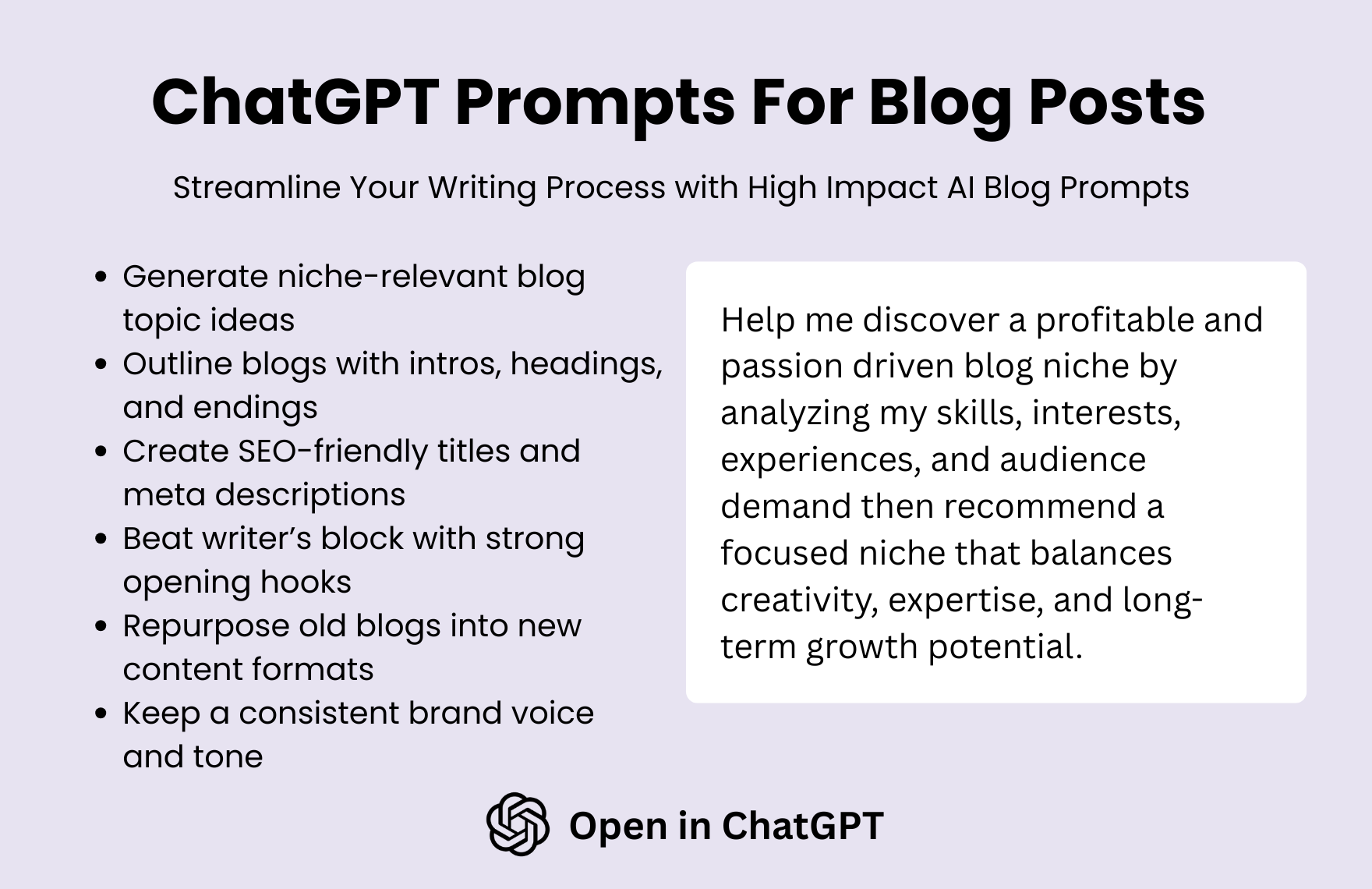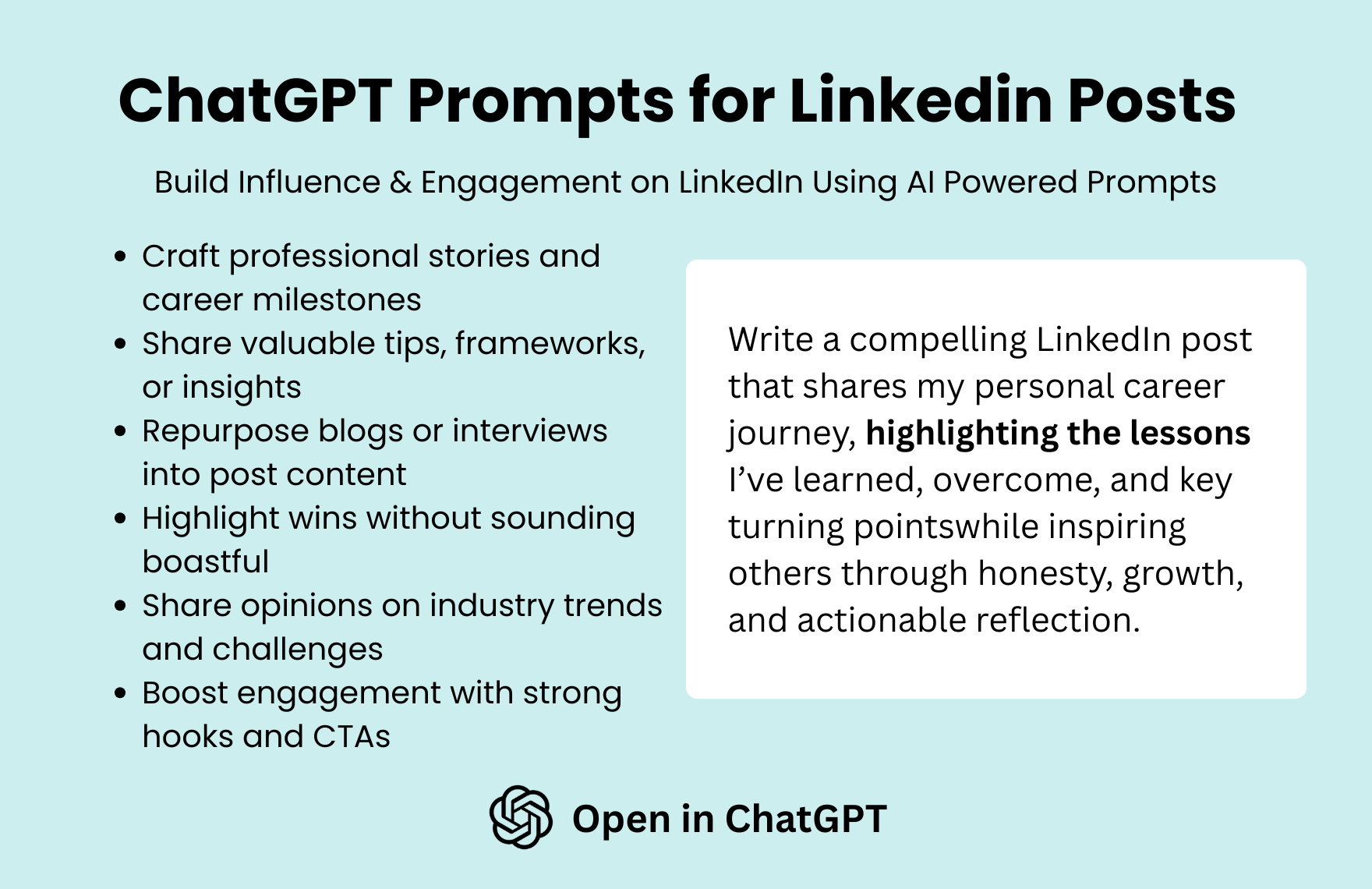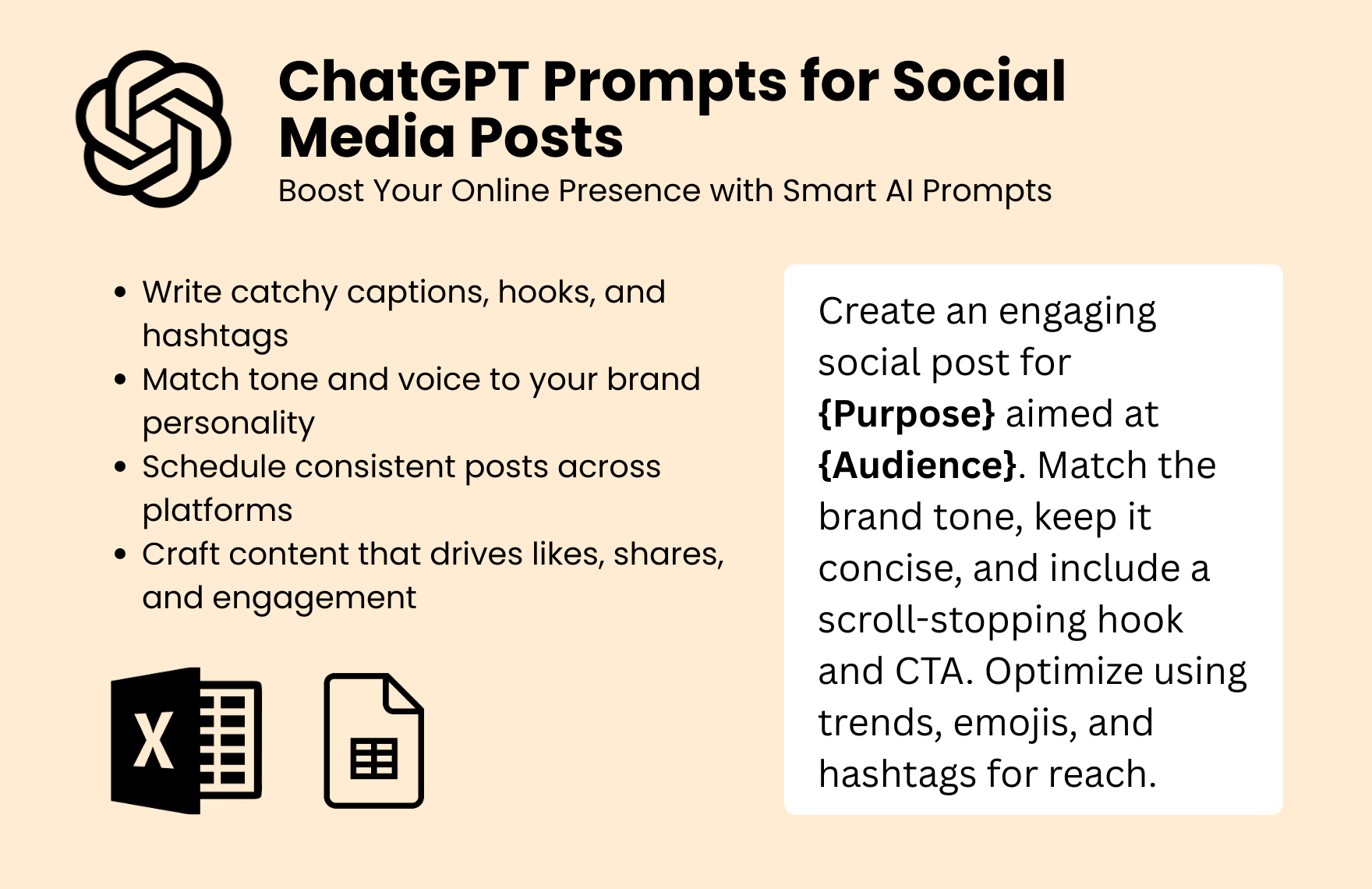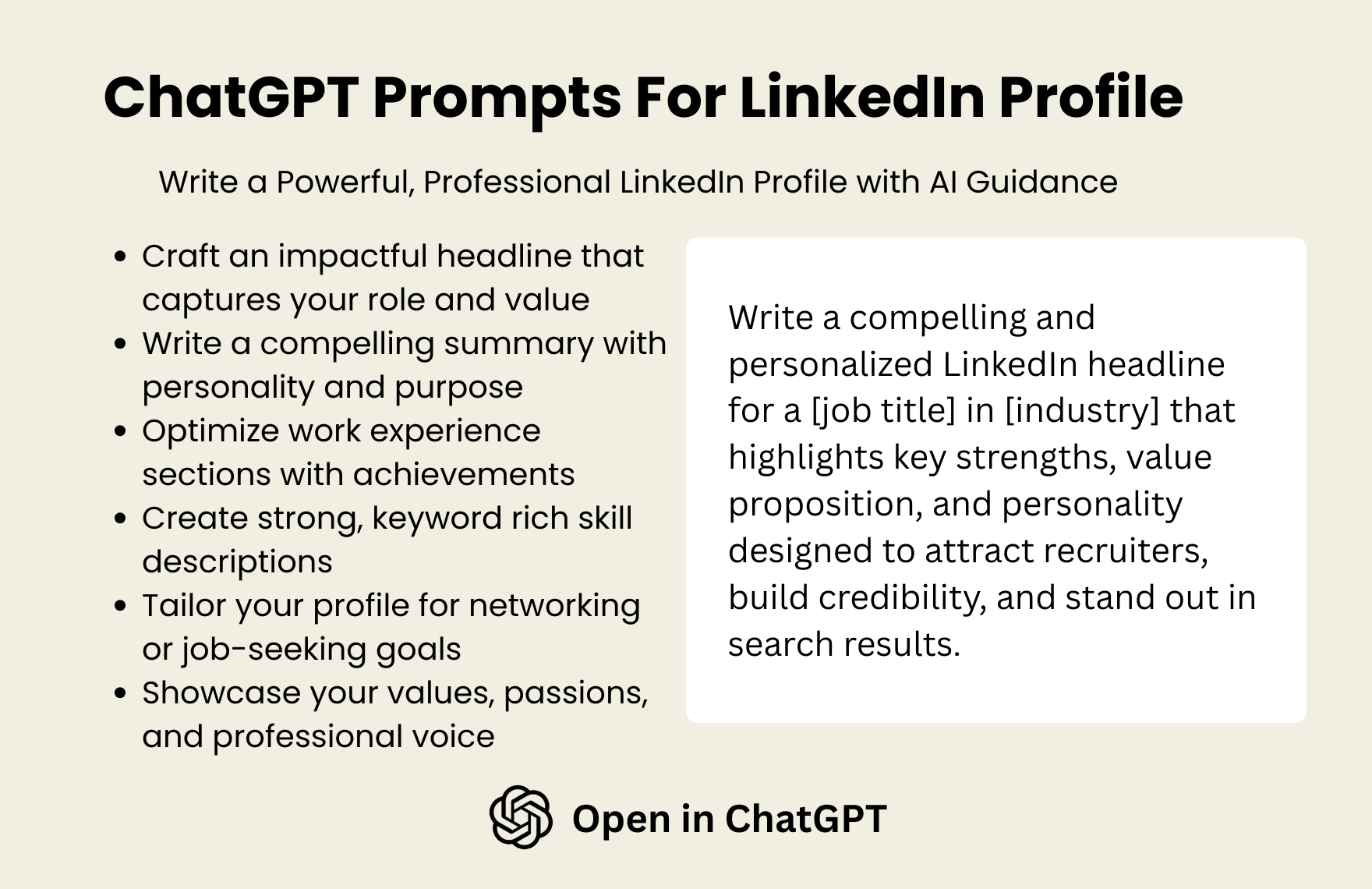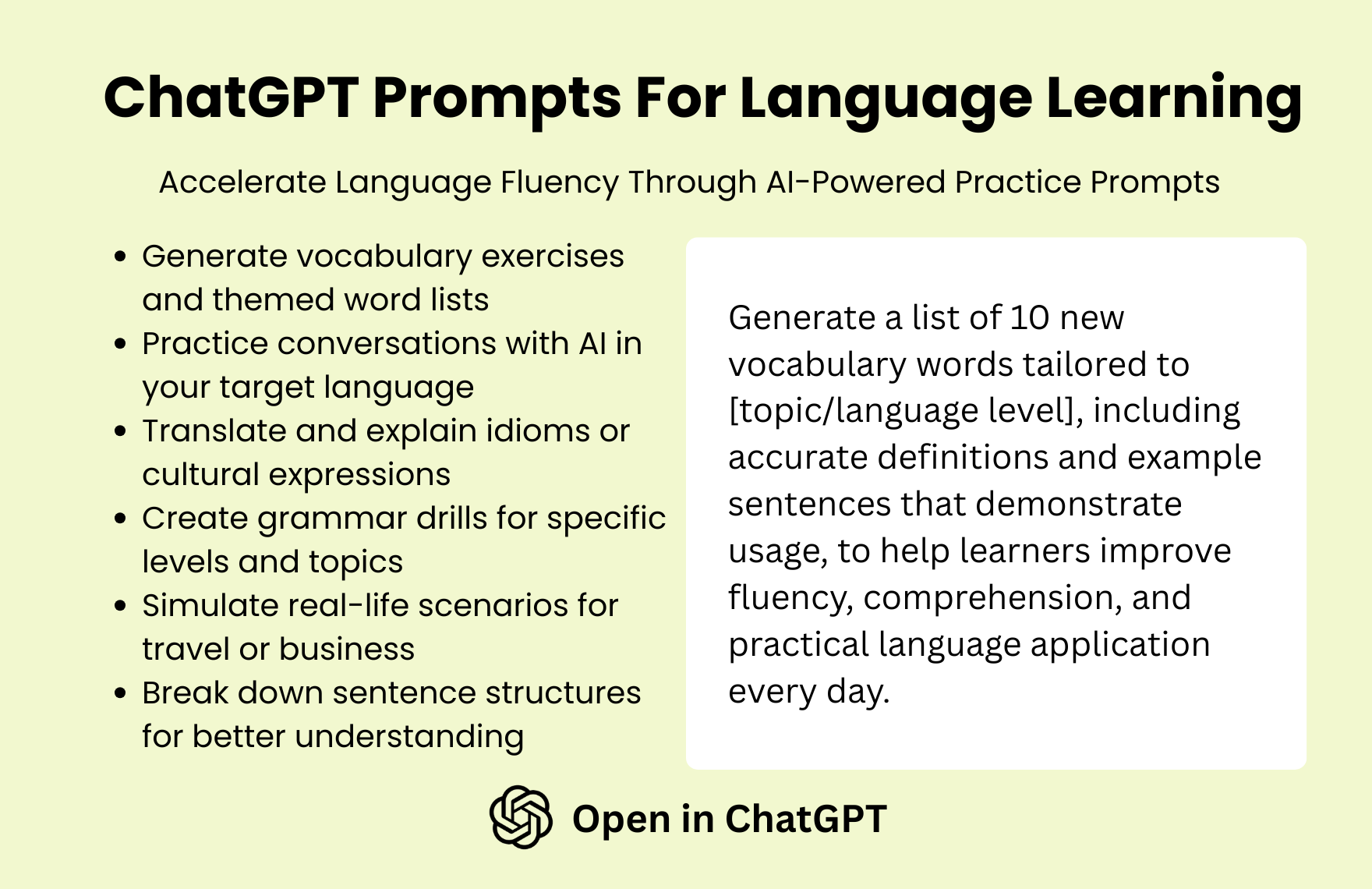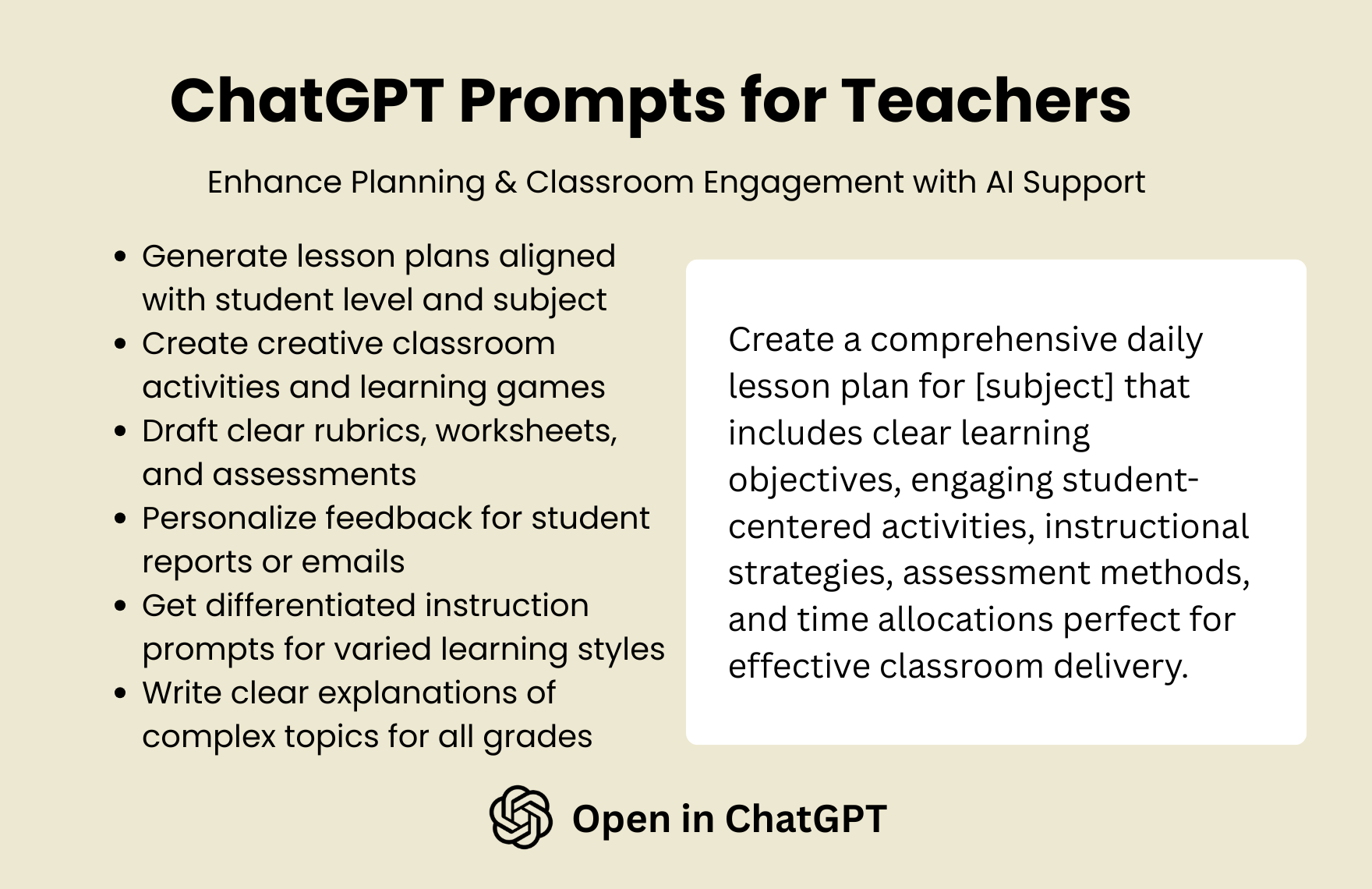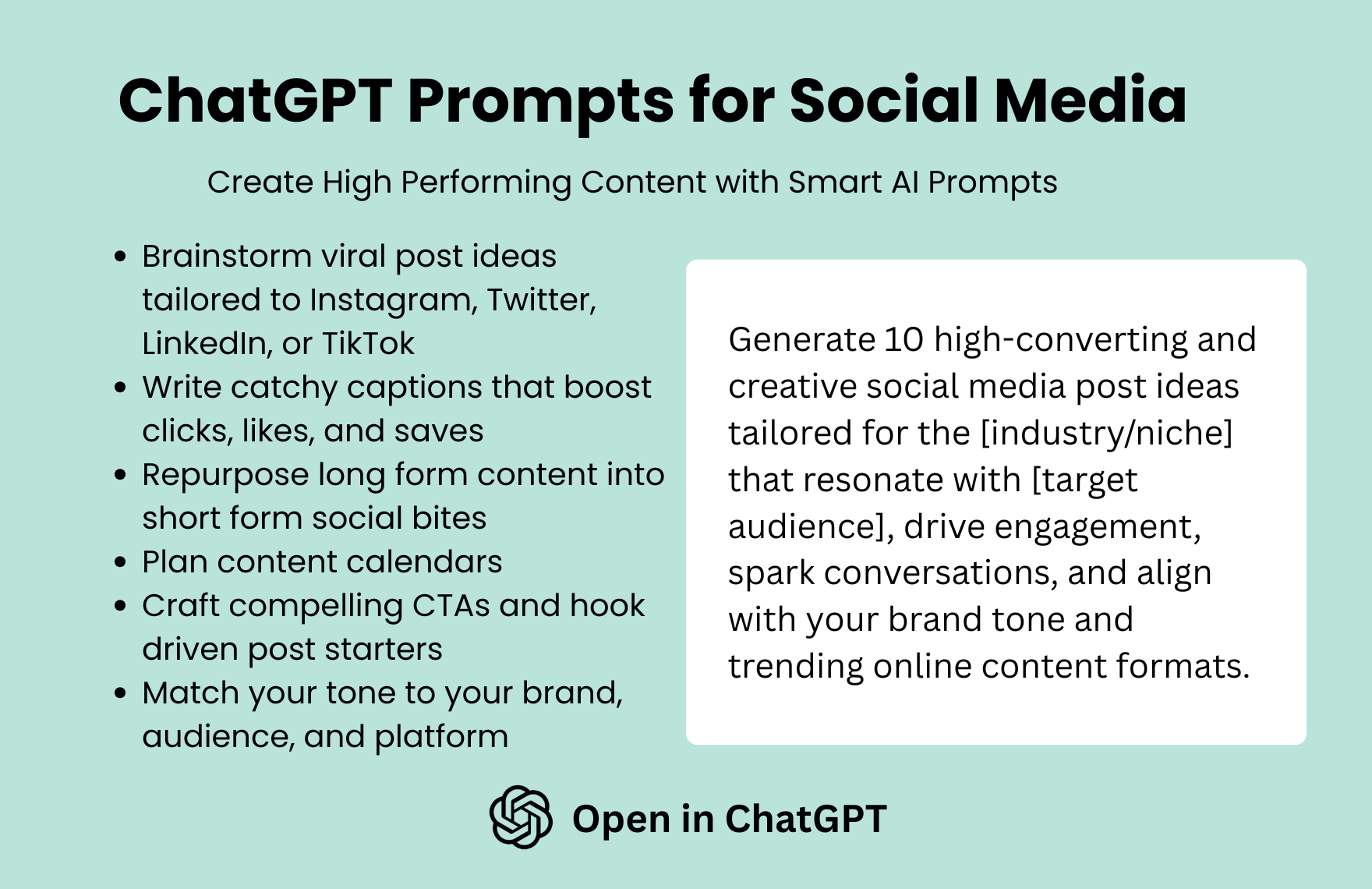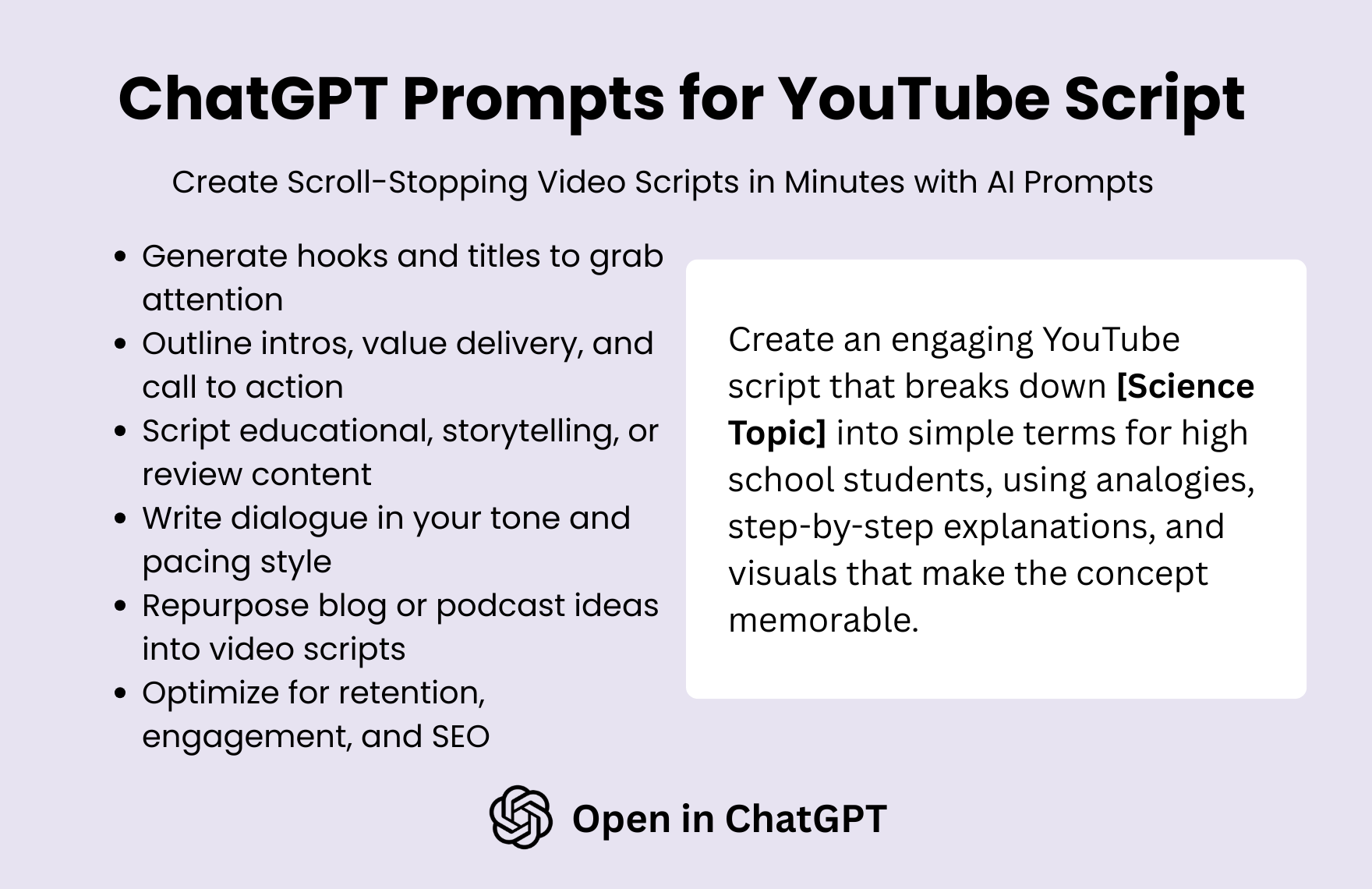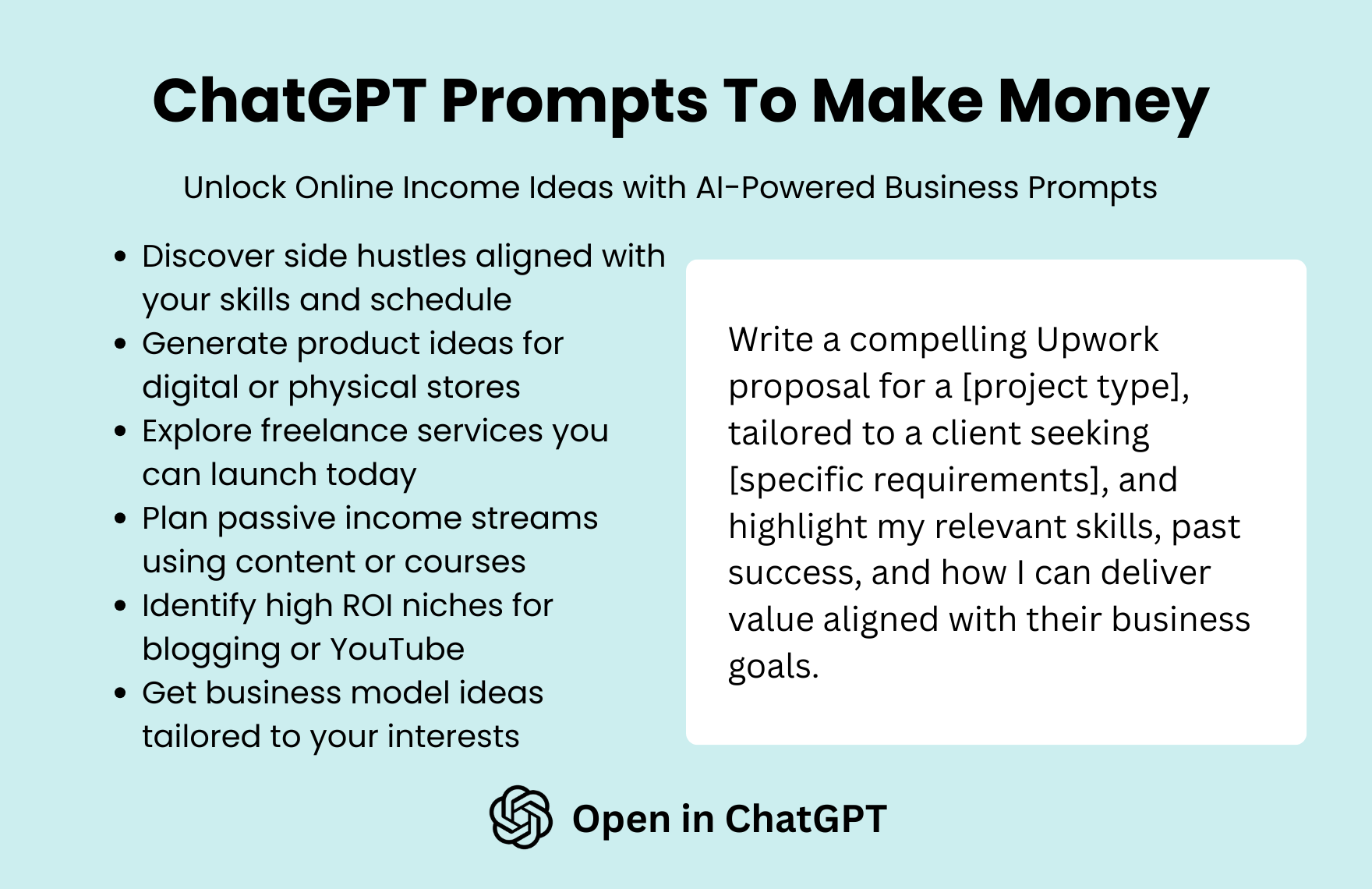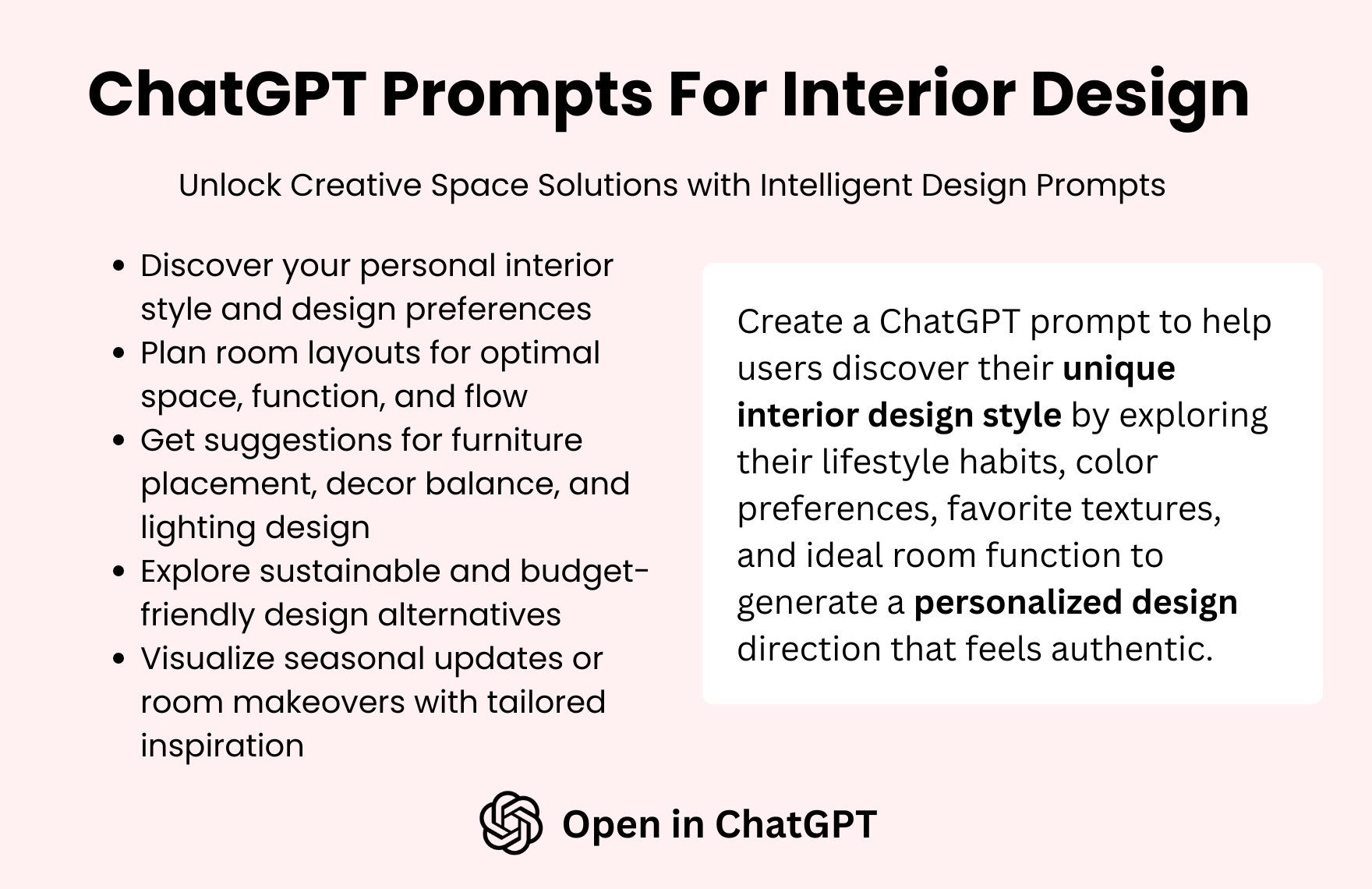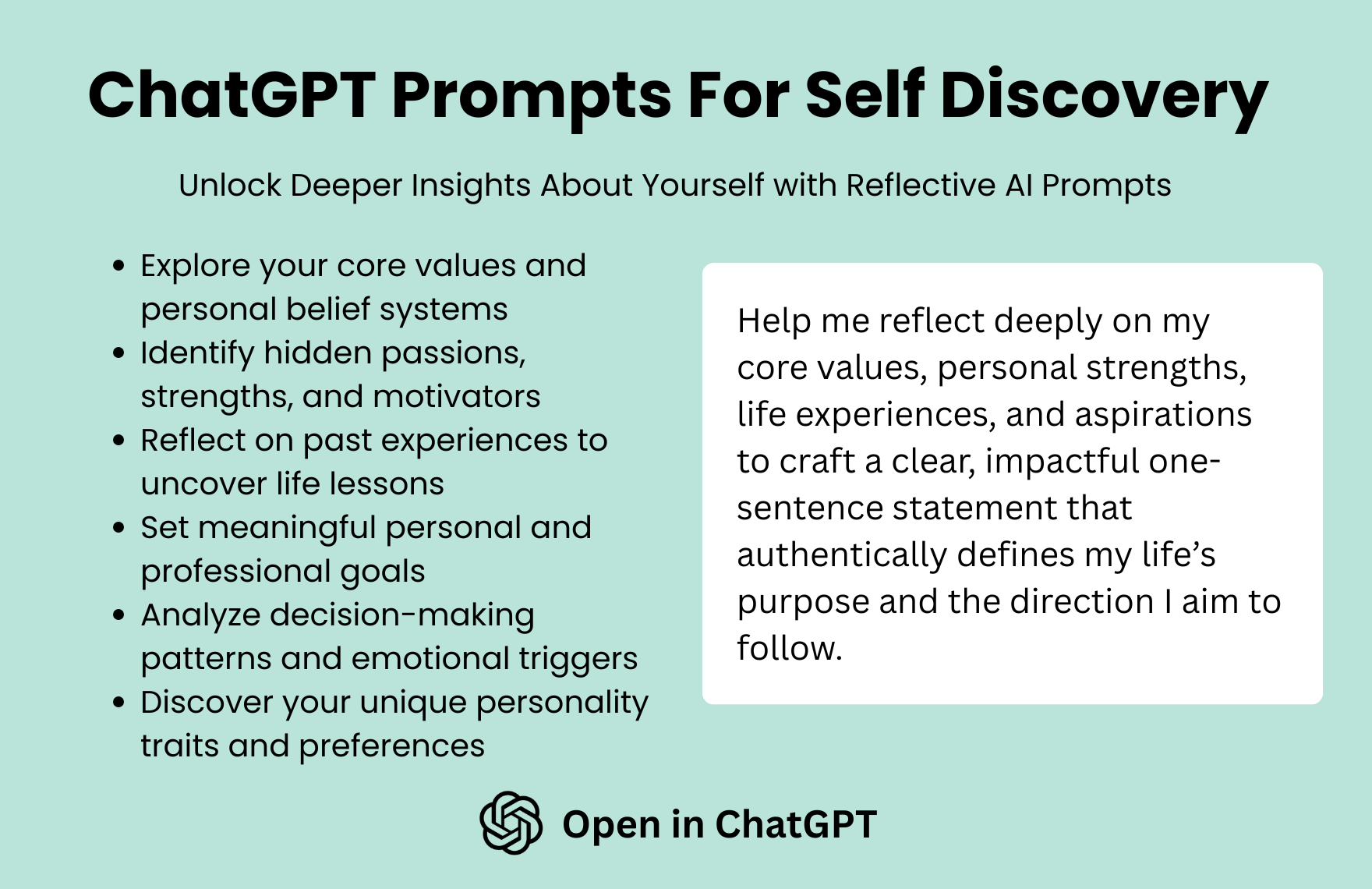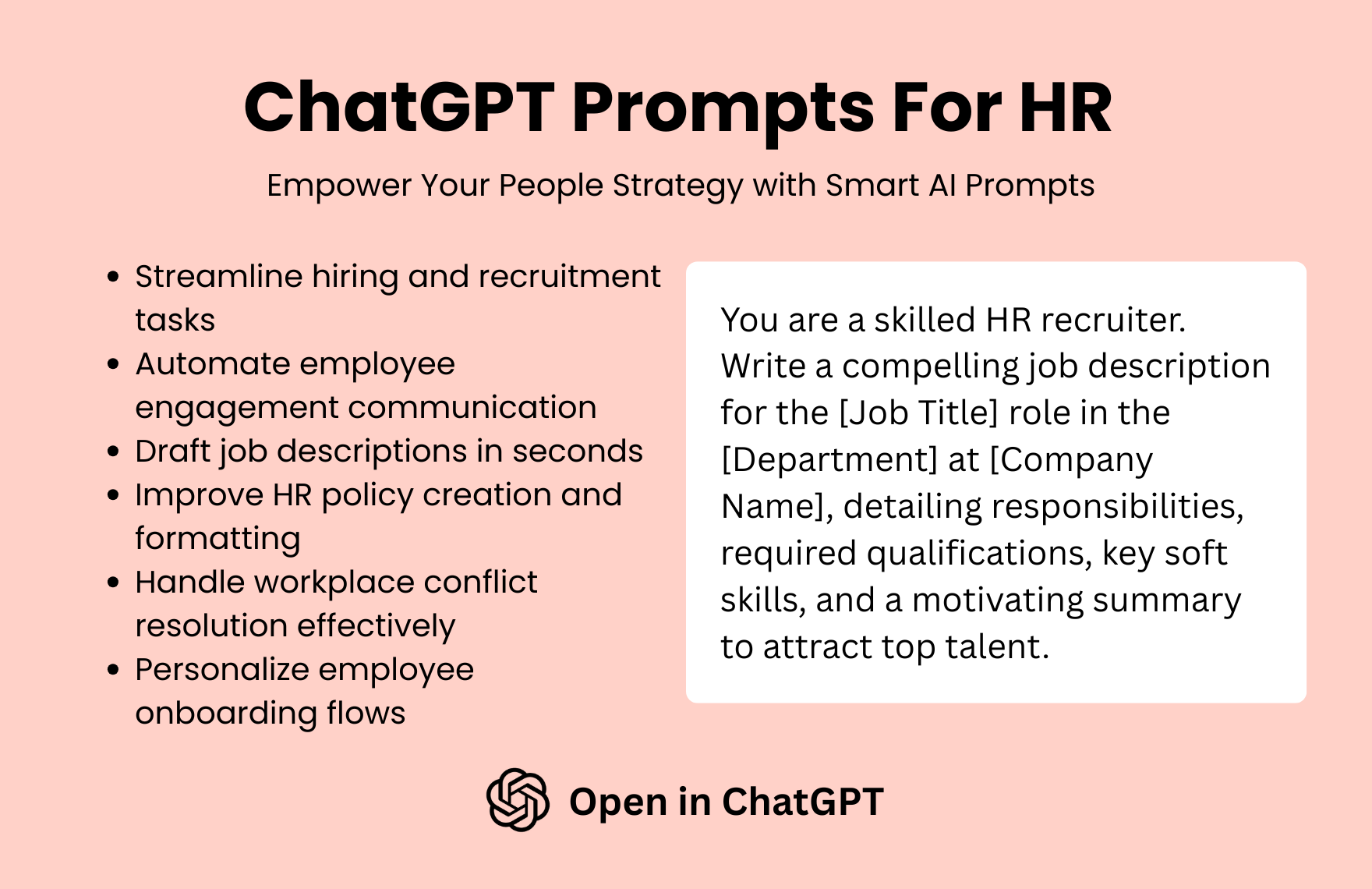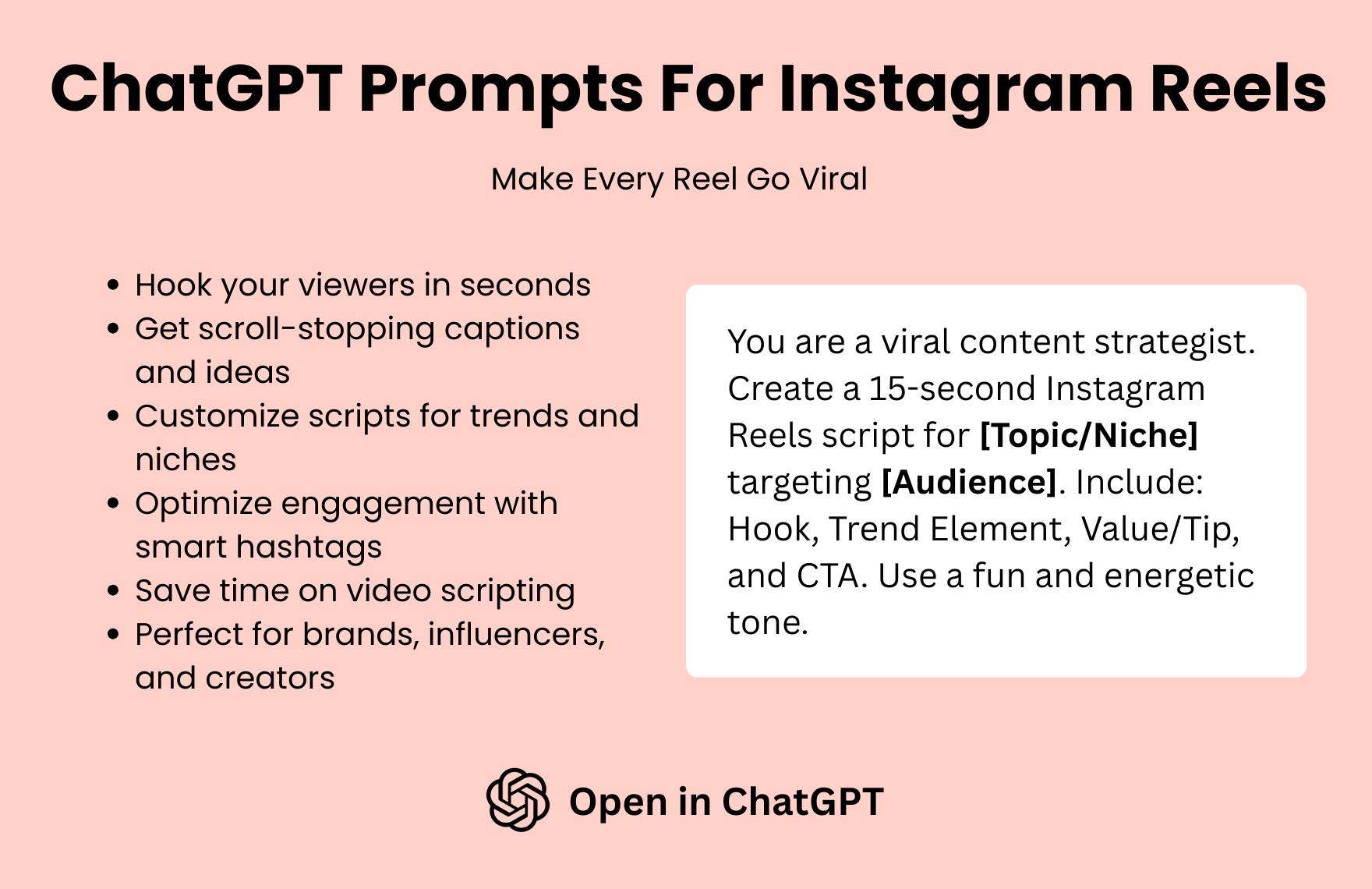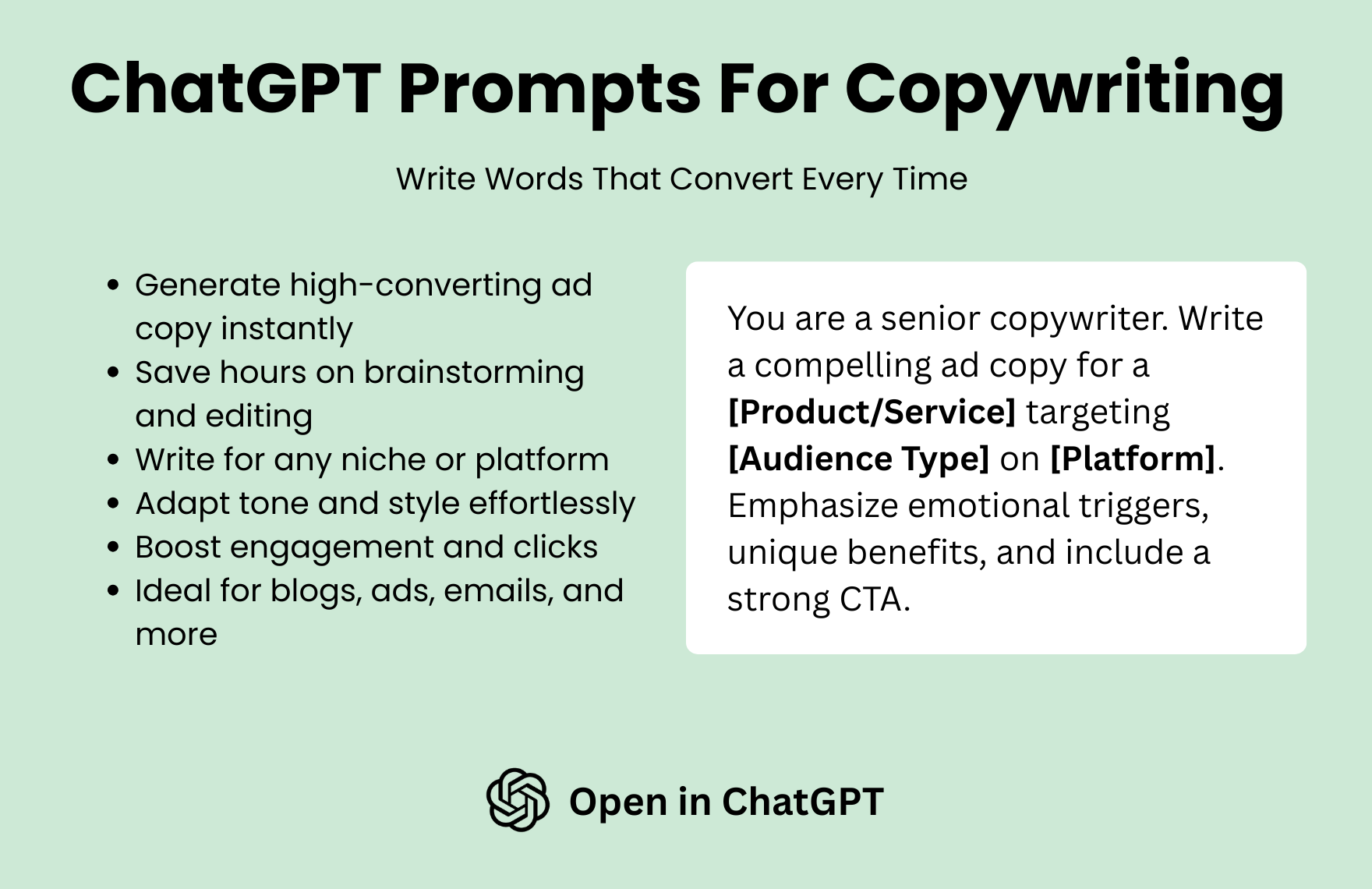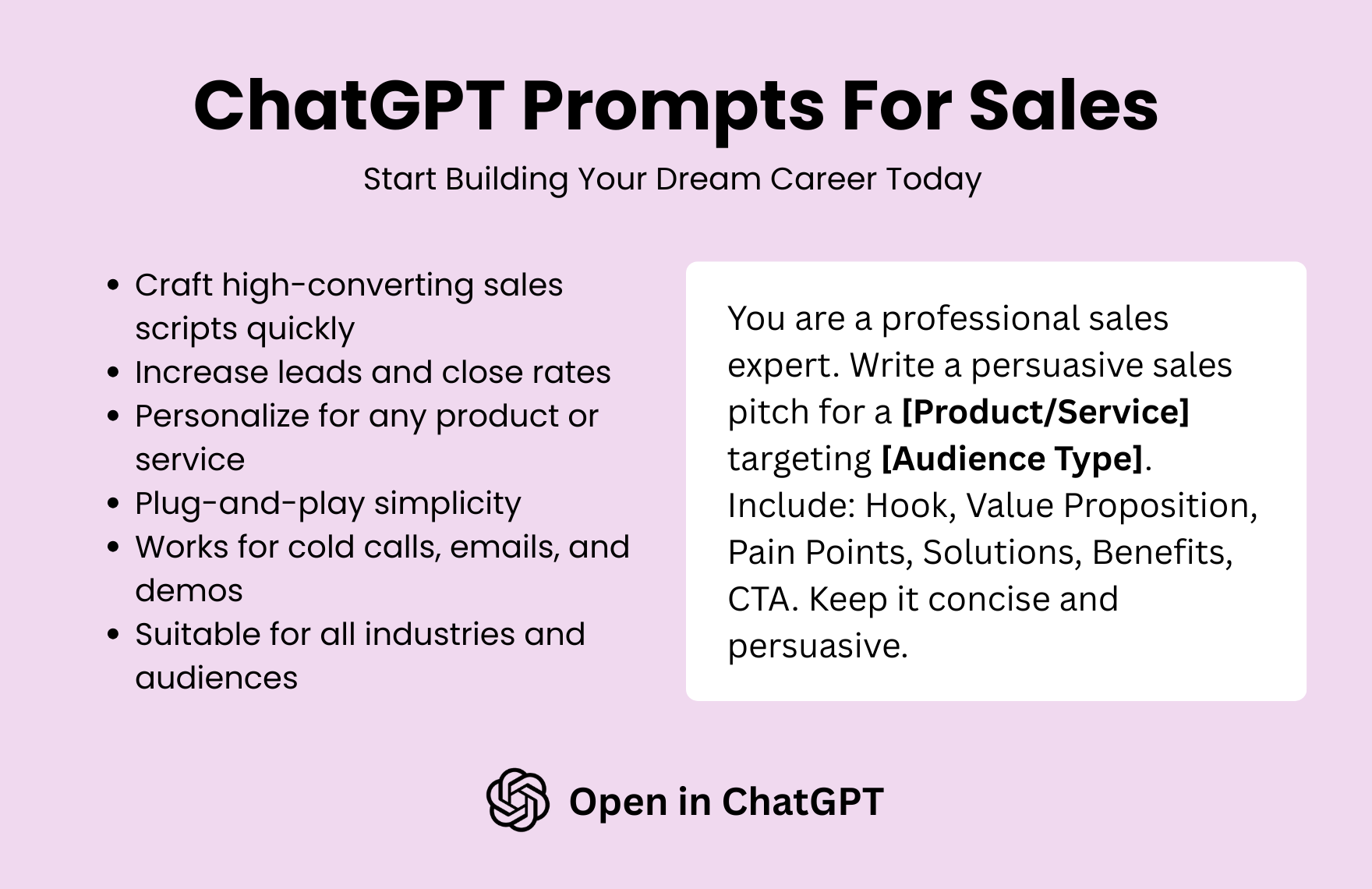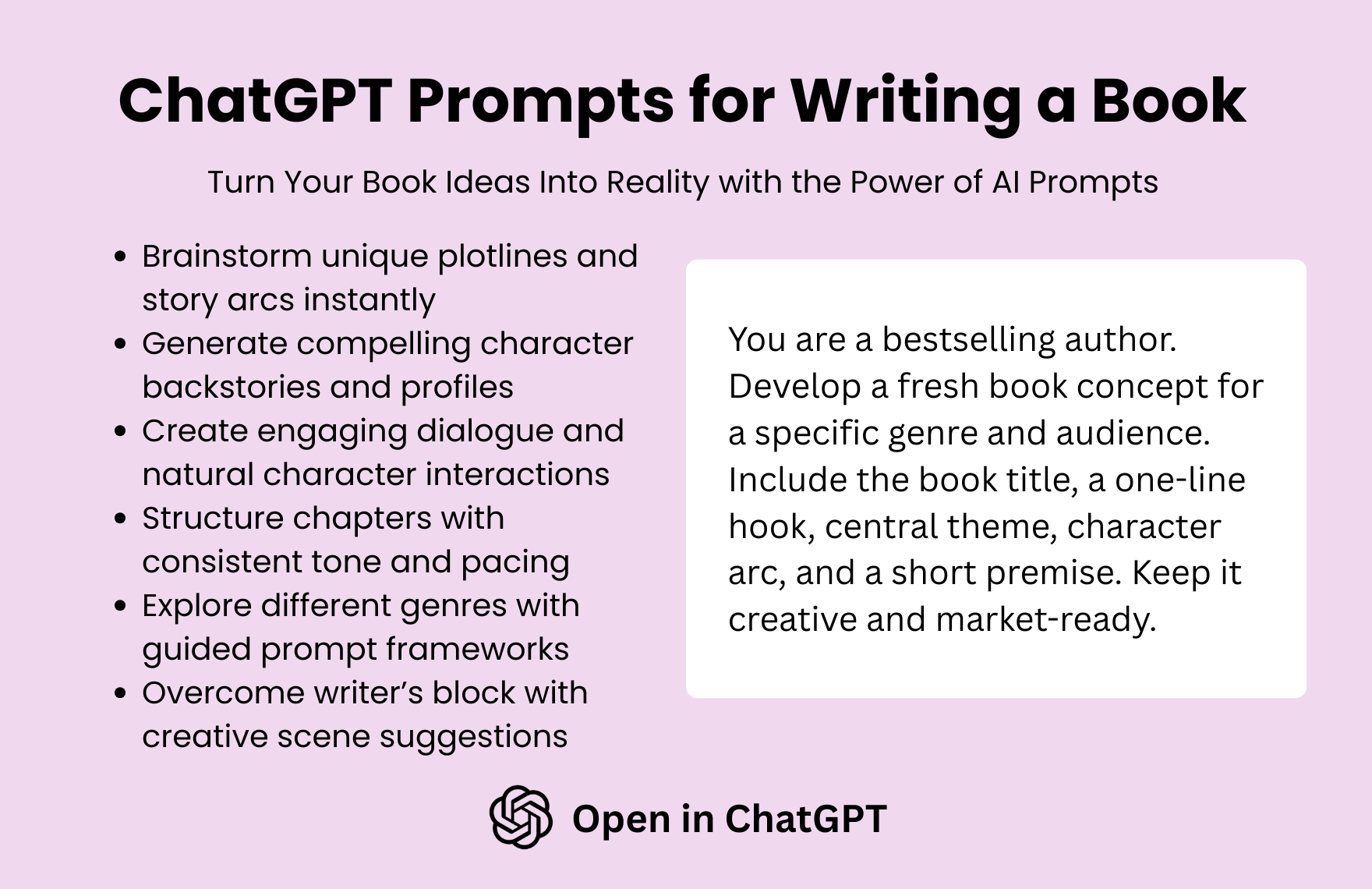Free ChatGPT Prompts For Blog Posts
Free Download this ChatGPT Prompts For Blog Posts Design in ChatGPT Format. Easily Editable, Printable, Downloadable.
Consistent, high-quality content is key to growing an audience. ChatGPT helps you brainstorm topics, structure outlines, optimize for SEO, and write engaging copy that keeps readers coming back. Whether you're a niche blogger or a content marketer, these prompts accelerate your writing workflow and elevate your content strategy.
Why Use ChatGPT Prompts for Blog Posts
Generate endless content ideas for any niche or industry
Create outlines and drafts quickly with SEO in mind
Maintain consistent tone and voice across all posts
Write meta descriptions, titles, and CTAs that drive traffic
Save hours in the content creation and editing process
ChatGPT Prompts for Blog Posts
Headline Generator: Create 10 headline variations for a blog post about {Topic} that improve CTR and keyword targeting.
Post Outline: Generate a blog outline for a how-to article on {Topic} with introduction, steps, and conclusion.
Hook Paragraphs: Write an engaging introduction for a blog post that immediately draws readers into a problem or story.
Call-to-Action Lines: Suggest 5 CTAs to use at the end of a post that drive subscriptions, shares, or comments.
Listicle Post: Generate content for a “Top 10 {Item/Tool/Strategy}” blog post including benefits and short descriptions.
SEO Optimization: Create an SEO checklist for optimizing a blog post about {Keyword Topic}, including meta tags and readability tips.
Content Repurposing: Suggest ways to turn a blog post into a LinkedIn post, Instagram caption, and short-form video script.
Publishing Schedule: Design a weekly blogging schedule for a site in the {Niche} industry with post types and goals.
Where You Can Use ChatGPT Prompts for Blog Posts
Generating post headlines, summaries, and outlines
Writing full-length evergreen or trending articles
Creating CTAs, email previews, and meta descriptions
Crafting pillar content for content strategy
Developing series-based content for topic clusters
Writing content upgrades or lead magnet intros
Optimizing SEO structure, formatting, and readability
Repurposing content into video scripts or newsletters
